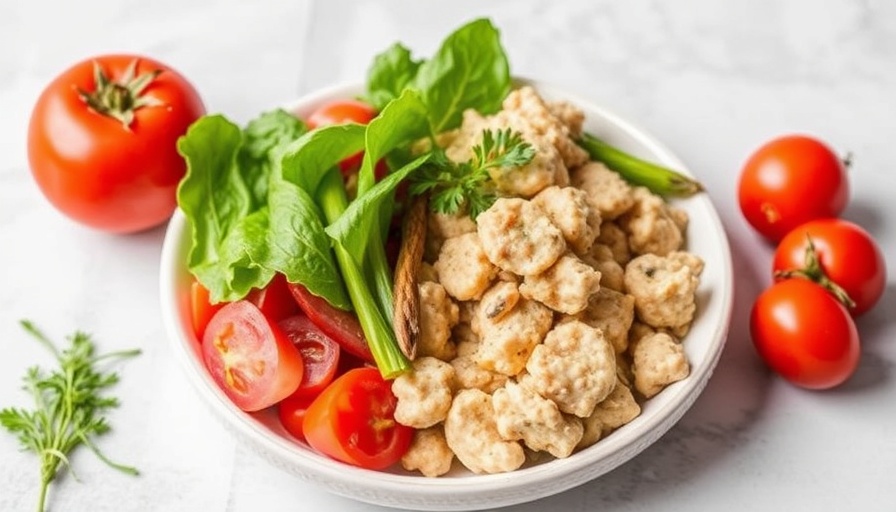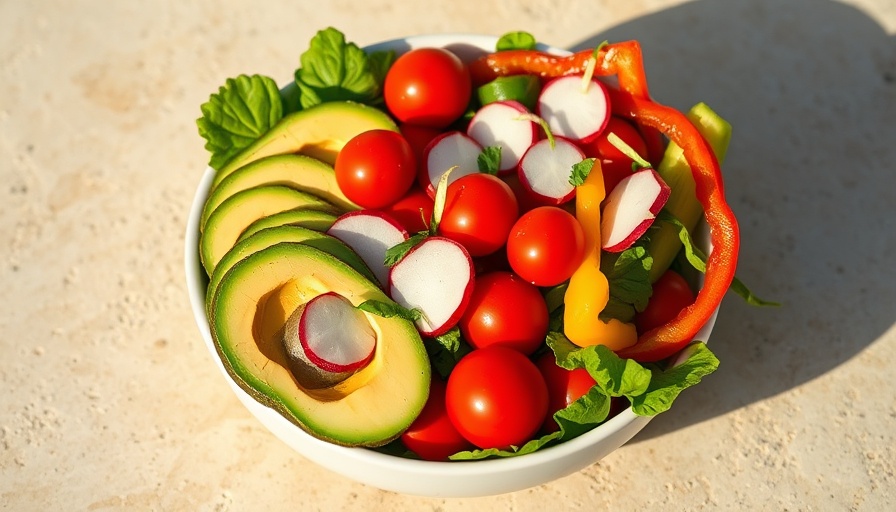
Understanding Hydrolyzed Vegetable Protein and Its Dangers
Hydrolyzed vegetable protein (HVP) is an ingredient you might encounter quite often as a flavor enhancer in processed foods, especially in items like soups and snacks. Many consumers have begun to question the safety of HVP, leading to growing conversations about its hidden dangers. Two substances of particular concern associated with HVP are monosodium glutamate (MSG) and 3-MCPD, a possible carcinogen. Understanding these compounds is key to safeguarding your health.
The MSG Connection and Its Controversy
MSG has been a controversial ingredient for decades. While it's known for enhancing umami flavors in dishes, many reports suggest that some individuals experience adverse reactions after consuming it, coining terms like "Chinese Restaurant Syndrome" for the symptoms, which can include headaches or discomfort. Dr. Russell Blaylock, a retired neurosurgeon, warns that glutamate—especially in free form—can act as an excitotoxin, potentially leading to long-term damage in brain cells. As such, even if you’re not sensitive to glutamate, the risk factors make it sensible to avoid HVP.
The Alarming Rise of 3-MCPD
While concerns over MSG have been debated for years, the newer threat of 3-MCPD has come to light only recently. This chemical can form during the production of HVP, particularly under conditions of high heat and acid treatment. It has alarmed health authorities globally due to its classification as a potential carcinogen. Unlike MSG, which has a more granular debate surrounding it, the evidence surrounding 3-MCPD poses identifiable risks. Continuous exposure to this substance could elevate cancer risks and raise concerns about reproductive health, as studies on animals suggest it may act as an anti-fertility agent.
How to Safeguard Your Diet
When it comes to making food choices, education is crucial. To minimize the risks associated with HVP, keeping your diet rich in whole foods is advisable. Opting for whole, unprocessed foods can significantly decrease your intake of hidden chemicals like HVP and its associated dangers. Moreover, when looking for a soy sauce alternative, consider using traditionally fermented soy sauce, which typically avoids the use of harmful processing methods that can lead to the byproducts associated with HVP.
Practical Tips for Healthy Eating
Here are a few easy strategies to help you safeguard your diet:
- Read Labels Carefully: Make a habit of reviewing ingredient lists to spot HVP and MSG.
- Choose Whole Foods: Focus on fresh fruits, vegetables, grains, and lean proteins.
- Learn Cooking Techniques: Try cooking meals from scratch to avoid the pitfalls of packaged foods that often contain HVP.
- Explore Alternatives: Look at vegan and natural brands that use simpler ingredients without harmful additives.
In Summary: Taking Control of Your Health
The issues surrounding hydrolyzed vegetable protein shine a light on the importance of vigilance in our dietary choices. As we become more knowledgeable about ingredients like MSG and 3-MCPD, it becomes easier to protect ourselves and our families. Making conscious dietary choices empowers us to enjoy flavorful food without compromising our health.
For women, who often take an active role in family health, understanding these risks can lead to improved dietary practices not just for oneself but for loved ones. Embracing a whole-foods approach is a healthier path forward, steering clear of the hidden dangers of hydrolyzed vegetable protein.
It's time to enhance your dietary awareness. Start making healthier food choices today and empower yourself with knowledge. Remember, your health is in your hands!
 Add Row
Add Row  Add
Add 




Write A Comment